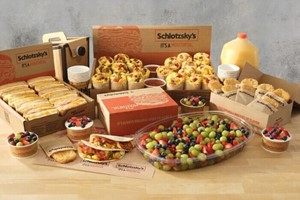In the fast-paced realm of corporate operations, orchestrating a seamless catering service for company events or daily sustenance can pose a significant challenge. Administrators and HR officers tasked with this responsibility often find themselves navigating a labyrinth of choices while striving to ensure both quality and convenience. Understanding the intricacies of corporate catering is essential for streamlining this process and achieving optimal outcomes.
Defining Corporate Catering
Corporate catering encompasses the provision of food to the staff of an organization or company. Typically initiated by an administrative call, caterers collect individual orders from employees either on-site or through remote means. The service can manifest in various forms, ranging from food trucks stationed near the premises to buffet-style setups or popup restaurants.
Types of Corporate Catering
- Food Trucks: Ideal for companies with limited on-site space, food trucks offer proximity and convenience, allowing employees to collect their orders without disrupting office operations.
- Buffet Style: Characterized by a diverse array of dishes served from large metallic pots, buffet-style catering facilitates self-service, enabling employees to select their preferred meals from a lineup of options.
- Popup Restaurant: This catering format entails caterers collecting individual orders and returning with the food, fostering a communal dining experience akin to a restaurant setting within the company premises.
Benefits of Corporate Catering
- Time-Saving: By eliminating the need for employees to venture outside for meals, corporate catering conserves valuable time and minimizes disruptions to workflow, ultimately enhancing productivity.
- Improved Staff Productivity: Shared meals not only foster camaraderie but also contribute to heightened morale and energy levels, translating into enhanced workplace performance and efficiency.
Ordering Corporate Catering
Ordering corporate catering is a straightforward process facilitated by online platforms. By conducting a simple search for corporate catering businesses, administrators gain access to a plethora of options, enabling them to select caterers based on their preferences and requirements.
Industry Trends in Corporate Catering
- Booming Demand: The emergence of hybrid work models has underscored the importance of catering services in fostering inclusivity and bolstering employee engagement, while companies increasingly prioritize enhancing the employee experience through catered events and perks.
- Employee Perks: In the competitive landscape of talent acquisition and retention, offering catering perks serves as a strategic differentiator, appealing to top talent and bolstering workforce satisfaction and loyalty.
- Convenience and Choice: Online ordering platforms streamline the catering process, while the proliferation of dietary restrictions necessitates greater customization options, ensuring caterers can accommodate diverse preferences and requirements.
Challenges of Corporate Catering
Despite the flourishing nature of the corporate catering industry, it is not without its share of challenges. Chief among these hurdles is logistics. Corporate catering demands meticulous attention to detail regarding delivery times, locations, and the preservation of food temperatures.
Moreover, accommodating diverse dietary restrictions poses a significant challenge for corporate caterers. With a broad spectrum of dietary preferences ranging from vegetarian and vegan to various allergies, crafting a menu that caters to everyone while upholding quality and presentation standards can be a daunting task. Striking a delicate balance between culinary innovation and dietary inclusivity is imperative to meet the diverse needs of corporate clientele.
Last-minute changes further compound the challenges of corporate catering. Fluctuations in meeting sizes or unforeseen dietary requirements necessitate a level of flexibility and adaptability on the part of caterers to swiftly adjust their offerings. Successfully navigating these unexpected twists and turns while maintaining a high level of service is essential to meeting client expectations and ensuring customer satisfaction.
Furthermore, the competitive landscape of the corporate catering market adds another layer of complexity. With numerous players vying for business, standing out requires more than just culinary prowess. Exceptional customer service, innovative menu offerings, and competitive pricing are essential ingredients for success in this fiercely competitive arena.
Requirements for Corporate Caterers vs. Regular Caterers
Corporate catering necessitates a keen understanding of business dynamics and professionalism in communication and presentation. Caterers must be adept at handling contracts, invoices, and other administrative aspects seamlessly. Menu versatility is paramount, with an emphasis on offering a diverse range of options to cater to various dietary needs, including breakfast selections and healthy alternatives.
Experience with delivery and setup in diverse environments, often with limited space or logistical challenges, is indispensable for corporate caterers. The ability to scale operations to accommodate large orders and events with numerous guests is also essential to meet the demands of the corporate clientele.
In contrast, regular caterers enjoy greater creative freedom and focus on personalization. They excel in crafting unique menus tailored to specific themes or client preferences. While presentation remains important, it may not carry the same weight as adhering to strict timelines and professional standards characteristic of corporate catering.
foodHQ Staff











